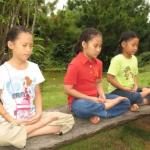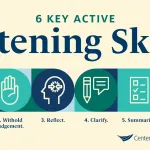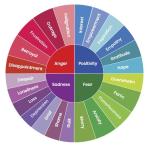Lesson Plans & Activities
Mindfulness Practices & Guided Meditation
This activity is one of seven activities in the Climate Mental Health Support Activities.
In this lesson, students will participate in some practices designed to help them start to pay attention to their breathing and pay attention to the present moment. These practices can help students practice self-care and emotional regulation. When used regularly, mindfulness can help students build emotional regulation skills and build a community of compassion and respect.Lesson
Elementary School
Middle School
High School
University/College

Connecting with Special Places in Nature
This activity is one of seven activities in the Climate Mental Health Support Activities.
In this lesson, students will take time to connect to a place that is special to them.Lesson
Elementary School
Middle School
High School
University/College
Out-of-school/Non-formal

Active Listening Skills
This activity is one of seven activities in the Climate Mental Health Support Activities.
In this lesson, students will identify emotions they experience as they learn about the impacts of climate change. In pairs, students will practice active listening skills as one student describes their emotions to the partner who applies active listening skills. They then flip roles and the other student describes their emotions while the partner listens.Lesson
Middle School
High School
University/College

Nature Appreciation
This activity is one of seven activities in the Climate Mental Health Support Activities.
In this lesson, students will play, explore, appreciate, and practice perspective-taking in nature. All of these actions help positively connect youth to nature, and instill an ethic of care for the environment.Lesson
Elementary School
Middle School
High School
University/College
Out-of-school/Non-formal

The Emotions Wheel
This activity is a stand-alone exercise part of seven activities from the Climate Mental Health Support Activities.
Emotion wheels have been a visual tool used by psychologists for decades to help people better understand and interpret their feelings. This activity is for people of all ages and can be done with family members, in a classroom, with friends, work colleagues, etc.Lesson
Elementary School
Middle School
High School
University/College
Out-of-school/Non-formal






